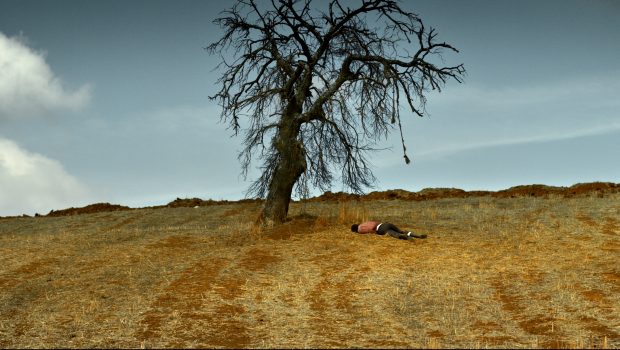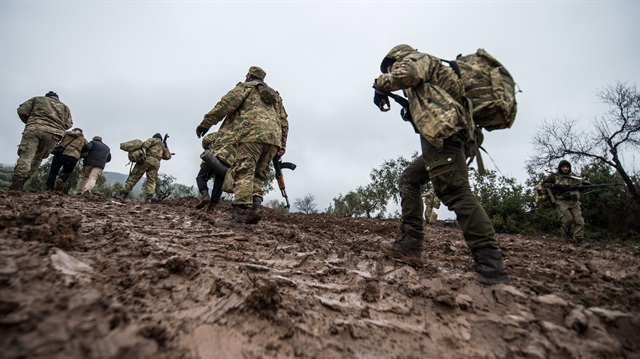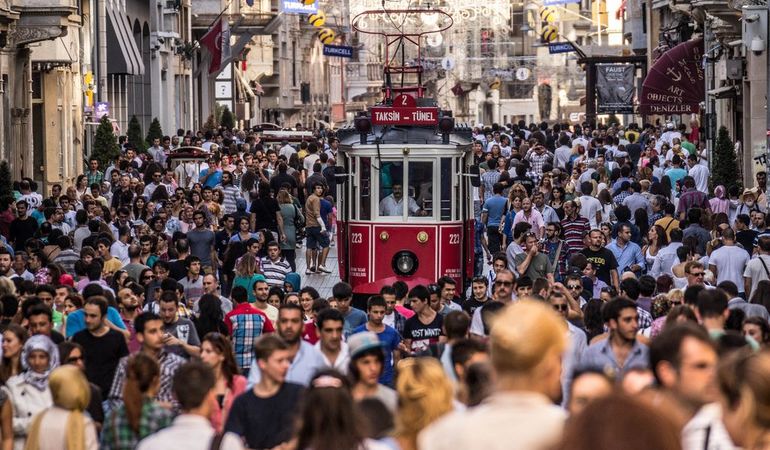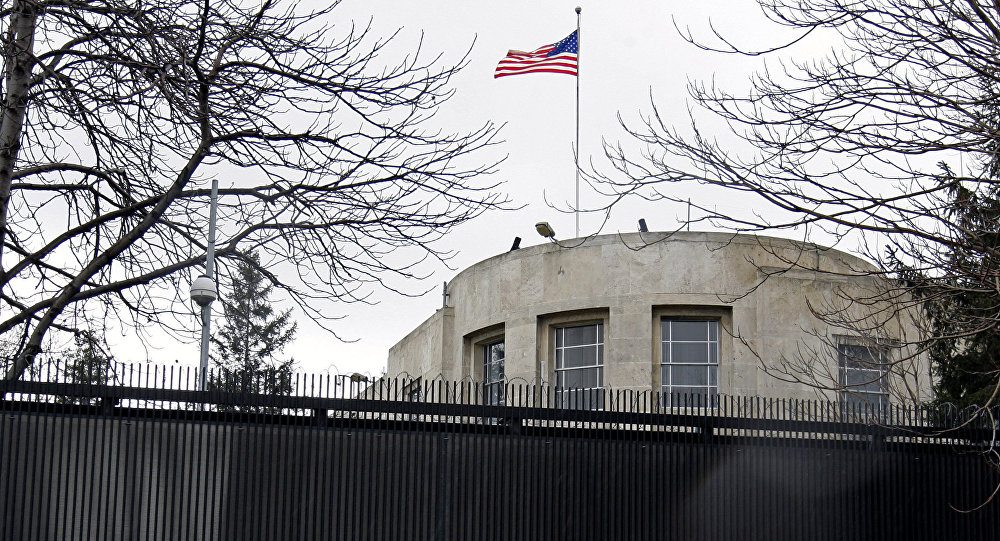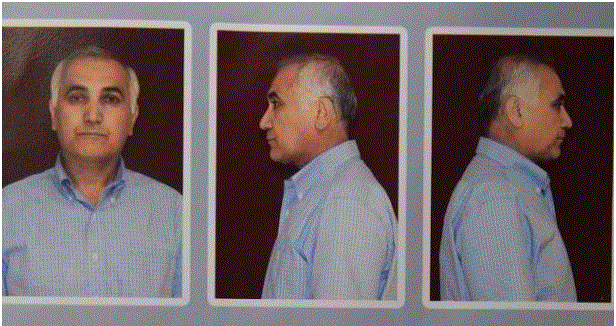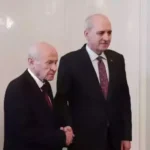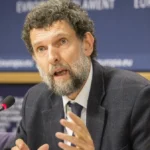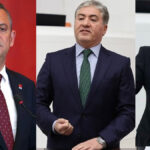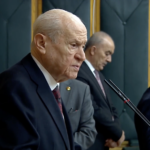In the previous essay I began an analysis aimed at illustrating how Edward Said’s Covering Islam is still relevant to the manner in which the Turkish Republic is presented to information consumers by the Western press. The second chapter of Said’s book concerns the groups in U.S. academia, media, and punditry which dominate interpretations of the Islamic world for U.S. society. He begins by noting the sea change in attitude towards the Muslim world triggered by the mid-1970s oil crisis. Prior to the crisis little attention was paid to the Muslim world, but a different, more sinister tone emerged as the American intelligentsia began to evaluate the implications of the crisis. To illustrate his point, Said discusses key 1975 Commentary essays from Robert W. Tucker and Daniel Patrick Moynihan. (1) By the time the Iranian Revolution occurred, a general malign understanding of Islam had emerged which made it possible for Islam as a whole to be equated with the most evil figures known; the result was that Ayatollah Khomeini’s treatise, Islamic Government, could be published as “the official United States government translation of… Ayatollah Khomeini’s Mein Kampf.” (2) Even worse, Said notes that apprehensions about Islam expressed by Tucker and Moynihan were “confirmed and fleshed out by left-liberals.” (3)
In the exact same time-frame, modernization theory lost the momentum that had driven it since the early 1950s. Everett Rogers, a major figure in the field, declared in 1976 that the communication and development “paradigm” had been superseded. (4) Concurrently, a shift in expertise could be discerned among academics writing on Turkey. Until the 1970s, academic work performed by Americans on issues related to Turkish society were dominated by modernization theory in the fields of anthropology, communication, sociology, and even psychology. (5) These efforts were quietly and indirectly supported by the U.S. government, and were definitely marked by normative thinking and prescriptive studies. At the end of the day, however, they were intellectually profound, often based on years of field work in Turkey, and concerned with aiding Turkey’s industrialization and democratization process. But from the early 1970s, overtly political interests began to dominate the narrative concerning Turkey. Pundits, think tanks, and political scientists came to the fore while anthropologists, communications experts, and sociologists declined in visibility and influence. (6)
Said goes on to stress that what emerged on Islam from the American intelligentsia and media in the late 1970s were constructions sourced in “communities of interpretation.” (7) For most Americans, the available sources for interpretations of Islam were television, radio, newspapers, and news magazines; even though the picture of Islam presented by these media sources was by no means monolithic, Said argues that a general consensus could be discerned. (8) The aspect which he stresses here is that, because Islam is a distant reality for most Americans, the mass media and intellectuals find greater room for constructing their interpretations of Islam and serving them to their consumers, and such constructed interpretations exist in a politicized context. They are presented through the mass media in a manner which reflects a specifically American understanding of Islam. The consequence is that, because of the massive political and institutional weight and strength carried by the American media representations of Islam, they have begun to affect even Muslims. (9)
Here is where Said goes to the heart of the manner. Given the generally distorted nature of the Western mass media’s representations of Islam, how do we get around those distortions in order to develop an understanding of Islam closer to the reality of everyday life in today’s Muslim societies? His answer involves not only knowledge of the Qur’an, but also of the myriad ways in which the Qur’an has been interpreted by different Muslim societies in different times and places. That means understanding the diversity of interpretation that exists in any particular Muslim society.
Today, the same “communities of interpretation” still exist, and the Internet, with its news sites and blogs, and networking innovations such as Facebook and Twitter, provides a veritable flood of information in addition to the previous popular sources of news. But despite the additional sources of information, the Western press narrative concerning Turkey today is just as pitiful as its coverage of Islam was in the late 1970s. In order to understand Turkey, not only does a commentator need to absorb and understand the same information about Islam that Said described, but also, that information has to be joined to economic, demographic, ethnic, linguistic, cultural, social and historical as well as military and political information relevant to the Turkish context and experience. That is not an easy task, but not impossible either. Why has there been so little improvement?
Even though Islam as a general category entered the American consciousness in the mid-1970s, Turkey remained only an unimportant footnote to that subject. Turkey has almost no oil, so it was never included in the rhetoric concerning oil that has occupied so much of the Western world’s attention since the 1970s. Yes, Turkey was a NATO member, but that garnered it no extra attention except in moments of crisis, such as the 1974 invasion of Cyprus, the September 1980 coup, or the First Gulf War in 1991. Other than brief flurries of attention, Turkey enjoyed little regard until the late 1990s when the unthinkable happened: the Islamists, in the form of Necmettin Erbakan and his Refah (Welfare) Party, came to power through democratic processes. Even though this first experiment of Turkey with an Islamist ruling party did not last long this, in hindsight, it was the first indication that Turkey would soon gain more attention. And after the AKP government proved itself successful in governing the country, running the economy, establishing a more independent foreign policy, and, even more amazing, ejecting Turkey’s generals from politics, the Western press began to experience an awakening, colored by concern: What was going on over there?
Unfortunately, the Western press was and is almost totally unprepared to provide informative Turkish coverage to its readers. Essentially none of the Western journalists reporting on Turkey are experts on Turkey; nor do they possess any long-term background study on any aspect of Turkish society. This, of course, is not the fault of the journalists, but rather of the news- producing organizations themselves, which rarely send a single journalist to a specific country for extended periods of time (i.e greater than five years) in order to improve the quality of the coverage. An illustration of the typical outcome was Ceylan Yeğinsu’s NYT report on the Türkiye Gençlik Birliği (Turkish Youth Union — TYU) attack on U.S. servicemen in November 2014. Her 12 November 2014 write-up repeatedly labels that group as “nationalist” (milliyetçi), but it is safe to say that they would not have accepted being referred to as such. Instead, that group is clearly ulusalcı or “patriotic leftist,” and everyone who is familiar with Turkish politics would be aware of this fact. (10) The difference between milliyetçi and ulusalcı has an entire cultural, historical, and political background that is vital to explaining exactly what the TYU is.
Further compounding the issue is the language barrier. Early on in his study (p. 21) Said mentions the lack of language skills that many journalists and even academics covering the Muslim world exhibit. This is still the case, and especially in regard to Turkey, since Turkish studies have traditionally received little attention from Western academia.
To be fair, one solution that Western press outlets have devised for the language problem is to hire locals to do the reporting. In intent and appearance this is actually an extremely positive step; in reality, however, it has brought its own difficulties. Hiring people from the societies being reported on, it turns out, does not guarantee that the reporting will be any more informative or insightful than sending a foreigner. Why? Local journalists fluent in English (or French) come almost exclusively from the elites of those societies. This means that, because local elites have often obtained an education that separates them from the popular culture of their own society, and which even inculcates certain class-based prejudices towards their own society, their reporting will often share the same weaknesses, even the chauvinism, that directly foreign reporting has displayed in the past. In Turkey, Şebnem Arsu and Ceylan Yeğinsu, who write for the NYT, Semih İdiz, who writes for the Hürriyet Daily News and Al-Monitor, Cengiz Çandar, who also writes columns for the Al-Monitor, Amberin Zaman, who used to write for the Los Angeles Times and now writes for the Al-Monitor, and Cengiz Aktar, who pens columns for Al-Jazeera English, are Exhibits A of this tendency. Interestingly, U.S. anthropologists and sociologists had long ago noted that Turkish elites often had little understanding of their own society. (11)
But it doesn’t end there. Over the past thirty-five years, Muslim commentators who express attitudes palatable for Western readers have become another Western press feature. Fareed Zakaria, who actually expressed support for the U.S. invasion of Iraq (12), is possibly the best-known example. Again, this trend could be a very positive development, but there are certain problems. For instance, what if the Muslim commentator in question expresses ideas that are no different from the prejudices previously voiced by Orientalists? Mustafa Akyol, who now has become the NYT’s “Voice of Reason from Turkey,” penned a column on 23 September 2015 titled “Islam’s Tragic Fatalism.” (13) After recovering from the violent wince that title elicits, one can refer to Said’s book where, more than three decades ago, he wrote that “… as Orientalist scholarship had traditionally taught, Muslims were no more than fatalistic children tyrannized by their mind-set, their ‘ulama, and their wild-eyed political leaders into resisting the West and progress…”. (14) Plus ça change, plus c’est le même chose.
The overall result is that, in the U.S., when the Republic of Turkey enters the public’s awareness, there is little informed depth to the discussion — in the same manner, and for essentially the same reasons, that Edward Said diagnosed thirty-five years ago. Because Turkey received little sustained Western press attention until about a decade ago, and because most Western journalistic coverage of Turkey is poorly informed concerning Turkish society, obtaining objective, dependable information about events in the country is next to impossible for mainstream Western media consumers.
NOTES
(1) Said, Edward. Covering Islam: How the Media and the Experts Determine How We See the Rest of the World (New York: Pantheon Books, 1981), pp. 34-36.
(2) Ibid., pp. 39-40.
(3) Ibid., p. 39.
(4) Fair, Jo Ellen and Hemant Shah, “Continuities and Discontinuities in Communication and Development Research since 1958”; The Journal of International Communication (Vol. 4, No. 2, 1997), p. 4.
(5) For a psychological study carried out by a U.S. academic on Turkish subjects, see: Bradburn, Norman M. “N Achievement and Father Dominance in Turkey”; Journal of Abnormal and Social Psychology (Vol. 67, No. 5. 1963), pp. 464-468. Bradburn carried out this study with the “aid and encouragement” of David C. McClelland, one of the U.S.’s most prominent 20th century psychologists.
(6) Daniel Lerner, the major figure in the field, died in 1980. Even though figures such as Paul Stirling (who was British) and Paul J. Magnarella continued to research and publish on Turkey, socio-anthropological studies on Turkey have never regained the influence they enjoyed in the 1950s and 1960s.
(7) Said, op. cit., p. 41.
(8) Ibid., pp. 43-50.
(9) Ibid., pp. 49-53.
(10) For Yeğinsu’s original report, see: http://www.nytimes.com/2014/11/13/world/europe/us-sailors-assaulted-by-turkish-nationalists-in-istanbul.html?mabReward=RI%3A14&_r=0. For a taste of the Turkish Youth Union’s ideology, one can refer to their web page where they have a “Statement of Fundamental Principles” (Temel İlkeler Bildirgesi). The third item in the list reads: “Türkiye Gençlik Birliği, anti-emperyalisttir. TGB, Türkiye’de ve tüm dünyada Batı yayılmacılığına ve sömürgeciliğine karşı gençliğin sürekli mücadelesini savunur. Türkiye özelinde AB üyeliğine karşı çıkmak, ABD’nin Türkiye üstündeki askeri, ekonomik, kültürel ve siyasi hegemonyasını yıkmak, anti-emperyalist mücadele çizgisinin ana eksenini oluşturmalıdır.”
This is my translation: “The Turkish Youth Union is anti-imperialist. The TYU defends the youth’s continuous struggle in Turkey and in the entire world against Western expansionism and colonialism. Specifically with regard to Turkey, the main focus of the struggle should be opposition to Turkish membership in the EU, and to destroy the USA’s military, economic, cultural, and political hegemony over Turkey.”
(11) See: Frey, Frederick W., “Political Development, Power, and Communications in Turkey”; in Communications and Political Development (Lucian W. Pye, ed.; Princeton, N.J.: Princeton University Press, 1969), pp. 306-307, 312-319; Robinson, Richard D., The First Turkish Republic: A Case Study in National Development (Cambridge, Mass: Harvard University Press, 1963), pp. 272-274.
(12) http://nymag.com/nymetro/news/politics/national/features/n_8621/
(13) http://www.nytimes.com/2015/09/24/opinion/islams-tragic-fatalism.html?partner=rssnyt&emc=rss&_r=0. Akyol is the son of the veteran Turkish journalist Taha Akyol.
(14) Said, op. cit., p. 28.
Yazıyı beğendiysen, patronumuz olur musun?
Evet, çok ciddi bir teklif bu. Patronumuz yok. Sahibimiz kar amacı gütmeyen bir dernek. Bizi okuyorsan, memnunsan ve devam etmesini istiyorsan, artık boş olan patron koltuğuna geçmen lazım.
Serbestiyet; Türkiye'nin gri alanı. Siyah ve beyazlar içinde bu gri alanı korumalıyız. Herkese bir gün gri alanlar lazım olur.





